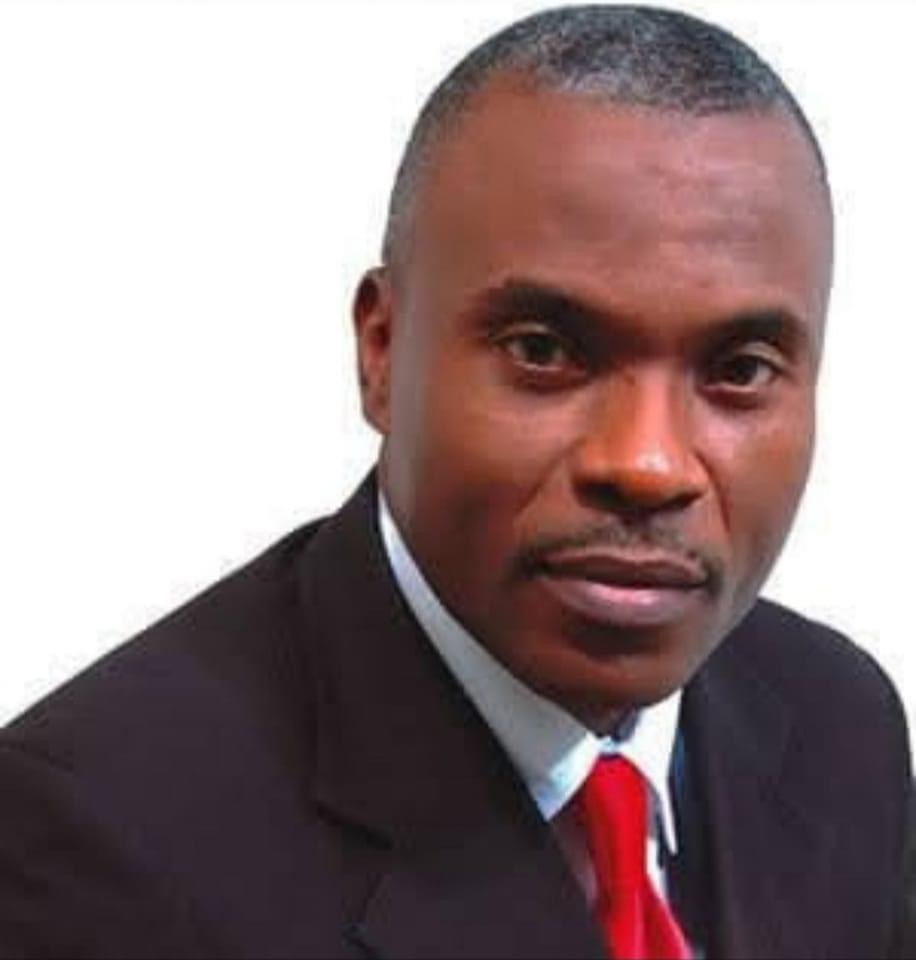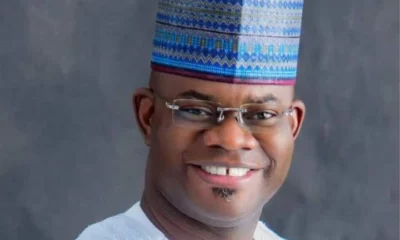GROpinion
[OPINION] My Boarding School Experience


By Azuka Onwuka
Since last week when 11-year-old Sylvester Oromoni, pupil of Dowen College, Lagos, was reported to have died from injuries allegedly sustained from the bullying meted out to him by some senior students of the school, there has been an outpouring of outrage against the management of the school. The videos of the pain the little boy went through before he died broke many people’s hearts.
There were allegations that the boys who bullied him were members of a secret cult group and that they did that to him because he refused to join them. Another version of the story was that they visited their anger on him because of an earlier issue with him that led to them being reported to the school authorities. The school had earlier said that Sylvester injured himself while playing football. This seemed to be what he told the school authorities because of the fear instilled in him by his attackers that if he told anyone what they did to him, they would kill him.
The incident has also elicited condemnation for the boarding school system, with many painting scary pictures to show the boarding school system as dangerous to pupils. The argument has been that children are meant to stay close to their parents until they are about 16 years old and ready to go to a university or leave home to start working. During that period, parents are supposed to mould them into what they want them to be until they become mature. There is merit in this argument but some of us who went to boarding are eternally grateful for the boarding school system despite all its challenges. Consequently, we also sent our children to boarding school.
Growing up, the best thing that happened to me was the fact that I spent some years in boarding school. Even though our parents were not well educated, they ensured that all six of us went to boarding school, including those of us whose schools were about three kilometres away from our home. Being in boarding school transformed certain things in me. I went into boarding school at 12 years old. Until I got into boarding school, I didn’t know that normal human beings could sleep during the day. I thought it was for those who were ill or plain lazy. There was so much playing to do that sleeping during the day was not an option. There were streams to visit for swimming. There were football and table tennis to play, kites to fly, motorcycle wheels to roll, bicycles to ride, wrestling bouts to hold, okoso games to play.
Then there were trips to different bushes to search for wild fruit. During the season of certain fruit like udara (African star apple) and mango, we would go from tree to tree to pick the fruits and finally pitch our tent under the one that produced the sweetest fruits and had the best terrain for play. Intermittently a fruit would fall and we would make a dash for it.
Then there was the cream of excitement: funeral ceremonies of men. At that time in the late 1970s and early 80s, the churches had not demonized masked spirits called mmanwu as idolatry. After the church funeral service and interment, the church priests and choir would depart and different mmanwu would perform. If the dance troupe Egededge would perform, then the event was even more colourful.
When I got to boarding school, I learnt that we must wake up by 5.15 am once the rising bell rang. We would light our lamps right in the darkness, even before the generator came on. Then we would run to the middle of the hostel with our hymn book before the count of three by the house monitor who was one year below the house prefect. We would sing a hymn, a junior would pray, then we would listen to the announcements and run off to a spring about one kilometre behind the school to fetch water for our senior as well as have our bath. We passed through a footpath in that darkness with our torches. Thankfully, nobody was bitten by a snake. Upon our return, we would sweep our duty areas, dress our beds for inspection, and then go to refectory for our breakfast.
I was shocked when after having our lunch, a bell rang and I was told it was time for siesta. The prefects went round with canes to ensure everybody was in bed. I lay on my bed in broad daylight wondering what a healthy, active human being should be doing in bed at a time like that. I asked those around me what if I was not feeling sleepy. They told me to just lie down there and keep calm for the one hour. Surprisingly, after some minutes of boredom, sleep took over me. It was only the bell for afternoon prep that woke me up. I was surprised that I slept in the afternoon!
That evening and later at night when we had our night prep, I noticed that I was strong and alert while reading. Those who didn’t have their siesta slept off in class after some minutes. Because of that, I took it upon myself to have my siesta every afternoon. It has been a tradition I keep till today as much as humanly possible. Any day I take my siesta, reading or writing at night becomes easy and fruitful.
I also learnt in boarding school the proper use of cutlery for eating. In addition, it stuck in me from then till now that one should not go around bare-footed, even within the compound. It was an offence to be seen in school after school hours moving around without your flip-flops.
It was also in boarding school that I first learnt how to manage my provisions and money from one week to another and from one month to another. I devised means to hide my money in my cupboard that even if someone broke into my cupboard, the person would not see where my money was hidden. Consequently, my money was not stolen for once. When I found out that my first school father would take my keys while I was sleeping and take my beverages, I devised a means to hide my keys while sleeping. I also learnt that junior lights out was 9.30 pm weekdays and 9pm weekends, while senior lights out was 11pm.
I learnt how to plan my day in boarding school. I learnt that there was a time to sleep, to wake up, to pray, to do your chores, to eat, to rest and to read. I learnt how to have a timetable for reading. I learnt cleanliness. The weekly inspection result was announced every Friday during the house meeting. I was afraid of ever coming last and getting the pig trophy. Therefore, I ensured that my clothes, hair, nails, shoes, bed, and corner were always clean.
Before boarding school, I was not confident to address any group of people. Stage fright was my companion. In my primary six when I was chosen to attend the birthday of our state governor, I returned to school and was called upon to tell the school my experience. I stood before the school, tongue-tied, looking at the ground where my right foot was creating some amazing abstract artwork only a handful of art aficionados could interpret. When I got into boarding school, it became a tradition to stand before the house members every Friday night to introduce yourself or explain what you understood from the bible passage read that night. After doing it repeatedly, all fears of standing before a crowd evaporated.
However, life in boarding school was not all rosy. Life was harsh for many of us as junior students. There were days we wished we ran away to our homes. The punishment was too much. If you turned left, you were guilty of one thing. If you turned right, you were guilty of another thing. If you turned back, it was a problem. If you went straight or remained still, you were guilty. And most times, you were told to obey before any complaint. In addition, you were regularly punished for no reason or for the errors of others.
There were deviants in boarding school. There were boys who engaged in homosexualism. There were boys who paid for rooms called bunks around the school where they hosted girls. There were those who would hide behind the hostel and smoke cigarettes. Some were said to even smoke weed. There were those who sneaked out of school to attend night parties or nightclubs or visit brothels. But students knew that once they were caught, the punishment was expulsion. The fear of bringing shame to your family was a huge deterrent.
Also there were seniors who were unnecessarily wicked to the juniors. They were power-drunk and acted like demi-gods. Juniors said silent prayers of harm for them. Some daring juniors played expensive pranks on such seniors like rubbing some devil bean pods on their bed. And when the itching started, everybody laughed at them silently except their classmates who laughed boldly. Such students never received success cards from juniors during their final exams. If they failed their external exam and returned to the same school for their “second missionary journey”, they got a taste of their wickedness.
There were also good seniors who stood up in defence of juniors when they were unduly maltreated. School fathers also ensured that no senior was unduly wicked to their school sons.
However, it is one thing to complain about wicked seniors; it is another thing not to be a wicked senior. Ironically most of the so-called victims of wicked seniors later became wicked seniors themselves without even knowing it. To many, such callousness is nothing but “school life”. But that is not true.
Bullying exists in Nigerian schools, but what happened to little Sylvester at Dowen College was outrageous, if the accounts in the public domain are anything to go by. If Sylvester was sleeping in his hostel when those boys came in at night to physically assault him, does that mean that no member of staff of the school lived in the hostel with the students? So if students start fighting at night and using dangerous objects against one another, there would be no adult to stop them or even know the story behind the incident? Today’s boarding school cannot be run like that of our era. There is no reason why a hostel master or mistress should not live by a male or female hostel to always know what is happening there.
In this modern age, there are many things schools should put in place to ensure that what happened to Sylvester at Dowen College does not happen to another child. One is that schools must create rules against bullying and enforce them strictly. The problem is that many private schools fear the parents of their students too much. They fear that enforcing rules strictly will make them lose many students. But it works the other way round. When parents trust that their children are safe from bullying and that no offending student will be allowed to go scot-free, they trust your school more and feel happy to send their children to your school.
Schools should also have sources through which they know when some untoward things are happening under their roof. It can be a teacher sexually molesting a student, or a student sexually molesting another student, or a case of physical molestation or whatever. Principals and teachers cannot be aloof while running a school where parents have entrusted their children in their care.
Whatever the reason that caused the death of Sylvester Oromoni, his death should not be allowed to go like others. If the investigation indicts any group or individuals, they should be punished. No parents like to send their children to school only to lose such children under questionable circumstances.
Columnists
Cybersecurity in 2024: Towards Ever Greater Sophistication of Tactics


Writer: CHESTER WISNIEWSKI, Director Global Field CTO, Sophos
With 2024 fast approaching, what are the results for 2023 and what are the developments in the threat landscape for this new year?
The year 2023 was marked by persistence in the tactics of cybercriminals, with the predominance of ransomware, the exploitation of vulnerabilities, theft of credentials and even attacks targeting the supply chain. The common point in all his attacks is their formidable effectiveness.
It is therefore essential to ask what trends will persist in 2024 and what strategies businesses should adopt to deal with these future cyber threats.
Between persistent trends and evolving cybercrime tactics
In 2024, the threat landscape is not expected to change radically, particularly with regard to attack typologies and criminal tactics and procedures.
Criminal groups still primarily focus their attention on financial gains and ransomware remains their weapon of choice. These cybercriminals tend to take the easy way out by opportunistically attacking unpatched security vulnerabilities.
The recent Citrix Bleed attack demonstrated the agility of cybercriminals when it comes to quickly and effectively exploiting these new vulnerabilities.
However, once patches are applied to these vulnerabilities, cyberattackers tend to revert to more common strategies of stealing credentials or, failing that, cookies or session cookies, which, while slightly slower, constitute always a proven means that allows them to penetrate within a system.
In 2024, however, we should expect increased sophistication in defense evasion tactics, particularly due to the generalization of certain technologies such as multi-factor authentication. These attacks will combine malicious proxy servers, social engineering techniques and repeated authentication request attacks or “fatigue attacks”.
AI and regulations will continue to shape cybersecurity
In 2024, the development of AI will have a positive impact on the efficiency of IT teams and security teams by enabling them to strengthen defenses and work more efficiently, including through the processing of vast volumes of data in the aim of detecting anomalies. It should make it possible to respond more quickly in the event of an incident.
Indeed, analysis of attacks in 2023 showed a shortening of the time between network penetration and the triggering of a final attack – using malware or ransomware. The need for rapid detection and response tools to prevent costly incidents is therefore essential.
Finally, regulatory developments could have a major influence on measures taken against ransomware. The need to take more substantial measures could push some states to penalize the payment of ransoms, which would represent a brake on malicious actors and change the perspective of companies in the event of an attack.
Other stricter legislation, such as the implementation of the European NIS2 Directive, is also expected to force companies to take additional measures, particularly regarding their abilities to collect data sets.
To protect themselves against increasingly rapid, effective and costly attacks, companies will need to strengthen their defenses by equipping themselves with tools that allow them to detect and respond to incidents more quickly.
The worsening cybersecurity talent shortage does not appear to be as serious as some studies claim. On the contrary, companies have implemented more lax hiring criteria and more open-mindedness in the recruitment process.
From this perspective, to guarantee their survival in a constantly evolving threat landscape, companies have every interest in establishing partnerships with cybersecurity experts whose main mission is to make the hyperconnected world safer, to advise and assist them. in setting up effective defenses.
GROpinion
The Internal Threat: The Hidden Face of Corporate Threats


Businesses today face many threats; but if those coming from outside are their main source of concern with a priority focus on ransomware, they too often forget to consider internal threats which can be just as devastating.
In fact, they take less time to assess the adaptability of their internal security measures in case a cyberattacker manages to break through their defenses from the inside and recover sensitive data that is easily accessible to him. So, what are the means to put in place to detect these threats and respond to them effectively?
The sources of these insider threats are diverse and very often undetected or detectable. They can thus be the result of negligence or even malice.
They can, for example, come from an implementation of relaxed security controls that do not apply to certain systems, or from a lack of logging and identification of these malicious activities.
Although, difficult to measure – since they are rarely the subject of dedicated reports – these internal attacks have already affected many companies.
What are the reasons for the appearance of these threats?
Intentionally or not, insider threats are legion. For example, when an employee carelessly forgets a USB key containing copies of critical information on the train, he then neglects to comply with all the rules in force.
This type of situation can be tragic for the company since there is therefore a risk of theft or public exposure of information that could lead to a violation of official regulations imposed by a governing body (usually GDPR, PCI and HIPPA) or by several regulatory bodies’ premises.
The company must then be extremely transparent by disclosing to its employees – and more broadly to the general public – that it has been the victim of a data breach within the organization, and it must also be held accountable. of all actions associated with this data breach.
But it can also be actions triggered intentionally for a wide variety of reasons. An employee may, for example, realize that he has the possibility of carrying out a malicious action in his workplace because of relaxed controls or because he has high visibility.
This type of situation can lead to the theft of confidential information belonging to the company. The employee then seizes this opportunity to harm the company with impunity.
Various flaws and patterns
Cybersecurity experts have identified three distinct insider threat motives which are revenge, greed, and inattention.
The first two reasons include, for example, intentional and accidental acts, and are more likely to occur following a dismissal or a resignation. However, these reasons vary according to the type of activity of the company.
In the case of the defense sector, it can be corruption or espionage, unlike the ICT sector, where commercial data theft is more widespread.
Employees in charge of selling products and solutions can thus save their customers’ contact details in files and programmers can steal the source code. Despite their media coverage, on the whole, cases of espionage or sabotage remain, fortunately, exceptions.
More generally, data leaks are often caused by insider threats, when sensitive information belonging to the company becomes “uncontained”, when it should be classified confidential according to the operational context.
This information then becomes “public” and people whose position has nothing to do with it can consult it. Very often, when businesses are faced with such accidental data loss or leakage, it is the result of carelessness, inadvertence or clumsiness – such as the loss of mobile devices, USB storage media or public exposure of repositories stored in the cloud.
The classic example of accidental data release comes from the use of the “To” and “CC” fields when sending an email to multiple external recipients, where personally identifiable information is exposed to all of these recipients; a situation that could have been avoided by using the “CCI” (blind copy) mode.
Finally, data destruction is also a typical action where the integrity and availability of data is taken away from the business.
This has the effect of preventing him from accessing critical information, which can directly impact the operational capacity of the company. While this activity is mostly associated with ransomware operators, it can also be attributed to insider threats.
It should be borne in mind that there are many reasons that could lead to such acts, but the main reason remains that the data is generally stored in a weak way, which allows too many people to access information that has nothing to do with the tasks entrusted to them.
These people can steal sensitive data for revenge, but also destroy it or remove it from the company or even try to extort its return.
How can we best respond to these threats?
The implementation of a strategy to prevent these internal threats remains difficult to implement, since once the attack has been launched, anticipation and control are already outdated. It is therefore extremely important to set up preparation sessions aimed at determining the impact of these attacks.
Thus, training employees in the correct use and understanding of internal company systems and processes can go a long way towards avoiding errors associated with accidental data leaks.
In addition, it can be useful to turn to several solutions and tools such as file and document management systems to better manage the critical data that the organization has in its possession. ZTNA limits access to only required tools/services/apps rather than everything on a company’s LAN.
It is also possible to employ Data Leakage Prevention (DLP) tools, capable of preventing accidental data leaks – except in the case of intentional theft. XDR systems and firewalls can also be very useful as part of the disaster prevention and recovery plan because they allow DLP to be implemented and log access and data movement at the same time. Their actions facilitate forensic work, particularly in understanding failures and their consequences.
Finally, the implementation of technical controls capable of regulating access to data and systems that contain sensitive information, as well as the monitoring of the results of these controls and the responses to violations of the security policy contribute to the detection of ‘a malicious attack in progress.
To protect their company and their employees from these internal threats, managers must imperatively limit access to the data to the persons concerned and ensure the implementation of strict controls on the most sensitive data, while providing them with the support they need.
In essence, therefore, the right balance must be struck between people, process and technology, since any imbalance can favor the introduction of instability, as well as an easier increase and spread of risks – whether they either external or internal to the company.


I’ll start on this by referring you an earlier piece I had written on 17 April, 2021 about Professor Farooq Kperogi when he attempted to hoodwink his readers and Professor Pantami that he was the latter’s friend but still went ahead to disparage him by spewing lies and supposed private matters on the Professor, the piece can be read here.
At that point, I had just switched from being his ardent fan to seeing him for who he really is, a propaganda merchant who thrives on the docility of Nigerians to cash out.
Kperogi had to acknowledge that article as it bursted his little games on 24 April, 2021 in his column tagged ‘On my friendship with Pantami’ and which can be read here.
I read Kperogi piece of today 11th February, 2023 where he attempted to as usual disparage Buhari’s naira policy and linked it as a ploy to stop a BAT and I found the analogy in it very ludicrous to say the least. I wonder why Kperogi has developed a permanent feeling and understanding that Nigerians are extremely daft and so he could spew anything at them albeit hypocritically after cashing out his little coins behind the scene.
Kperogi is a supporter of Tinubu but just like so many Nigerians who share his type of double character, he is finding it difficult to come clean about it, so he is using mind games this time around to blame Buhari and his policy as the reason why Tinubu would fail even though according to him, he doesn’t want it but he would prefer that the failure of Tinubu occurs through ballots and not through sabotage.
However, what Kperogi and the likes who don’t have the audacity and criticality to formulate critical campaign strategies to market Tinubu don’t understand is that the suffering of Nigerians which had largely made them to make up a mind did not start with the naira scarcity and it’s attendant suffering which in my opinion is over bloated by the likes of Kperogi and other propaganda merchants to unfairly blackmail Buhari into succumbing to perhaps use state resources to install Asiwaju as president and that won’t happen because in reality Nigeria has long moved away from such. You have to have some level of popularity to rig elections in any society and rather than campaign enough to get the masses support for Asiwaju, Kperogi and the likes believe the victory must only be gotten through blackmail.
While on my way back from office yesterday, I critically examined the menial marketers like ‘suya’ sellers and the rest, and I saw a normal activity going on as I used to know it and I wondered in my mind where the excessive suffering that was been hyped was? It has also been established and I know that those people in the remote villages that Kperogi attempted to refer to do not need more than one to five thousand Naira to transact and while in the beginning things got a little rough, POS merchants have since gotten cash for them and things are normalizing, so I’m sure that the whole propaganda about suffering is being spewed by some political elements who perhaps see free and fair contest as a threat to their victory and such narrative has to stop quickly because in recent past it was same kind of narrative that made Jonathan loose elections, Nigerians desist such fearful narrative.
Furthermore, Kperogi alluded to the fact that Asiwaju always used billion vans to win his way through elections, assuming without conceding that was true as coming from him, is Kperogi then telling us that he supports a corruption of the electoral system? If anything, is ensuring a free and fair contest by Buhari not worthy of commendation? I can bet you Nigerians especially those from
Northern Nigeria have accepted this policy not because there are not minor and temporary discomfort about it but because they see it from the prism of Buhari doing what he ought to have done a long time ago which was to annihilate corruption and its practices, so it appears the people were ready to bear this brunt in as much as it guarantees free and fair contest.
Speaking about a payback by Buhari after Tinubu had supported him, I have maintained in different fora that the agreement for the reciprocation was a party matter and that had been settled at the primary elections because indeed all stakeholders allowed Tinubu to emerge even though they had other preferences which is normal with every human. However, general elections are a totally different games because there are other contestants and it is a democratic regime we are in where numbers of votes garnered matters most, so Kperogi and co should rather concentrate on fetching votes for Tinubu rather than blackmailing Buhari to hand over powder to Tinubu already baked.
Kperogi supports Tinubu,I knew this penultimate the primary elections, when he kept dropping hammers on Osinbajo, a contract he collected to disparage Osinbajo in the eyes of the northerners so as to pave way for Asiwaju and that worked but the current one won’t work because the ordinary people from the north have bought into it to a large extent maybe not so much from the beginning of it but much more now. Rather than all these intellectual shortcuts, I have advised the APC and it’s campaign to make appropriate recruitments to formulate strategies and such recruitments can be out of the ‘big names’ and the usuals, there are millions of smart boys and girls out there who can beat Kperogi and the likes to their cheap and opportunistic games, Daniel Bwala is one of such examples!
May the best man win for Nigeria’s increased progress, Amen!


-



 Spotlight4 days ago
Spotlight4 days agoPresident Tinubu Congratulates Tunde Onakoya On Guinness World Chess Record
-



 Politics4 days ago
Politics4 days agoGovernor Of Delta State, Sheriff Oborevwori Visits Fled Community Of Okuama, Calls Indigenes To Return Home
-





 Finance5 days ago
Finance5 days agoImmigration Office Place Ex Governor, Yahaya Bello On Watchlist While IG Of Police Withdraws All Police Officers Attached To Him
-



 Transport2 days ago
Transport2 days agoFederal Government To Launch Out 2700 CNG Buses, Tricycles Ahead Of First anniversary Of Tinubu’s Administration
-



 News2 days ago
News2 days agoNigeria Has Secured $2.25B World Bank Loan With An Interest Rate Of 1% – Minister Of Finance
-



 Finance9 hours ago
Finance9 hours agoGodwin Emefiele Disobeyed Direction Of Law With Intent To Harm The Public, He Printed ₦684.5M Using ₦18.9B Says EFCC in fresh charge
-





 News15 hours ago
News15 hours agoEFCC: Former Governor Of Kogi State, Yahaya Bello Fails To Show Up In Court, Says He Is Scared Of Arrest






